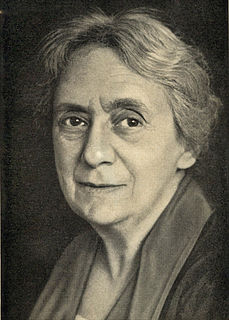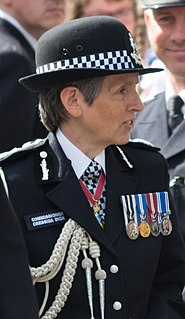A Quote by Henrietta Szold
Women were freed from positive duties when they could not perform them, but not when they could.
Related Quotes
I currently perform the most important political duties an American has the responsibility to perform - I experiment in self-government on a daily basis, fulfilling my "we the people" duties to monitor and guide our elected employees to adhere to their oath to the U.S. Constitution and demand accountability from them.
The old gods and their magics did not dwindle away into murky memories of brownies and little fairies more at home in a Disney cartoon; rather, they changed. The coming of Christ and Christians actually freed them. They were no longer bound to people's expectations but could now become anything that they could imagine themselves to be. They are still here, walking among us. We just don't recognize them anymore.
I don't think that there's a target audience at all. These stories were in circulation. The stories were told by men, told in the marketplace by men, but also behind doors by women, but there's no real record of this. It's likely they were told by women to children in their interior rooms. The story could be a negative story, they could be presented as a, "Watch out! Women will get round you, do things to you, weave you in their toils." It could be buried in it an old cautionary story about women and their wiles.
The women all had big minds because they were big animals, but they didn't use them for this reason: unusual ideas could make enemies and the women, if they were going to achieve any sort of comfort and safety, needed all the friends they could get. So, in the interest of survival they trained themselves to be agreeing machines. All their minds had to do was to discover what other people were thinking and then they thought it too.
Grandad taught me that the alien signs and symbols of algebraic equations were not just marks on paper. They were not flat. They were three-dimensional, and you could approach them from different directions, look at them from different ways, stand them on their heads. You could take them apart and put them back together in a variety of shapes, like Legos. I stopped being scared of them.
Where did all the women come from? The supply was endless. Each one of them was individual, different. Their pussies were different, their kisses were different, their breasts were different, but no man could drink them all, there were too many of them, crossing their legs, driving men mad. What a feast!
I don’t know who my parents were. I know nothing about my inheritance. I could be Jewish; I could be part Negro; I could be Irish; I could be Russian. I am spiritually a mix anyway, but I did have a solid childhood fortunately, because of some wonderful women who brought me up. I never had a father or a man in the house, and that was a loss...






































